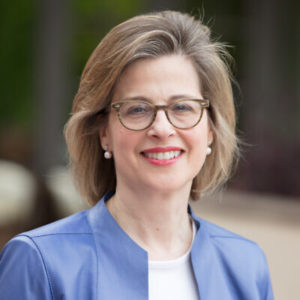By Ariel Zwang

(JNS) As the pendulum continues to swing between diplomacy and possible conflict in Ukraine, a quiet crisis of human need is spreading out across the country. While not the dramatic stuff of front-page news, it’s impacting the most vulnerable people—the poor and elderly, especially—and its toll materializes in a tragic choice between food, medicine and heating as the harsh winter sets in.
At the center of this challenge are tens of thousands of needy Jews whose everyday suffering is increased by skyrocketing inflation, and rising food and utility prices. These are the result of rising tensions on Ukraine’s borders and the long tail of the coronavirus pandemic’s economic toll. These factors hit hard a nation that faced high unemployment and poverty rates prior to the global health crisis.
For poor, elderly Jews, monthly pensions are as little as $2 a day with many homebound, ill and frail. They survived the Soviet onslaught against Jews, the financial and social spasms of the early years of post-Soviet life, and just spent the last two years in paralyzing fear and isolation over COVID-19.
For children and families in need, there is a daily grind to make ends meet. Employment opportunities are scarce, the average monthly wage is only $616, and if they are entrepreneurially minded, their hopes for starting a new business were upended by lockdowns and the general Ukrainian pecuniary snarl.
Now imagine this reality for economically disadvantaged people when they have to go to the market. In 2021, they saw sunflower oil increase by 75% and sugar by 90%, and 2022 will bring projected increases of 35% for bread and potatoes, and 20% for meat. Since January, their heating costs have increased by up to 50% (depending on where they live), electricity by 36.6% and water bills by 19%.
These scenes seem a world away, but in many ways, these Jews are just like us. They are professors and scientists, engineers and librarians, or working families. They enjoy holiday celebrations and home-cooked meals with family and friends. They embrace cultural pursuits—literature, art, music—with a legendary enthusiasm.
They are part of a Jewish community—one of the largest in the world at 200,000 people—that has miraculously roared back after communism’s oppression of Jews. When the Soviet Union broke apart, it left nothing in its wake but the pintele yid (that “spark of Jewishness” in Yiddish) that’s grown into a strong fire. This blaze was kindled for three decades by overseas Jewish organizations and philanthropists that came to the former Soviet Union with the future in mind.
What they found was a people eager for Jewish culture and meaning. They reignited in themselves a passion for Jewishness. This embrace of their identity included an older generation once forced to be ashamed of their roots and a young, rising generation keen to embrace the heritage some of their parents and grandparents once hid. They went from sparks to bonfires.
You find that bright light in the flagship Jewish Community Centers in Dnipro and Kharkiv, and daily prayers at synagogues from Odesa to Kyiv. You feel it at widely attended Zoom programs and the stirring Havdalah melody of hundreds of Jewish youth at an annual conference on Jewish values and leadership. Above all, you see it in the thousands of Jewish community volunteers who deliver food, medicine and human connection to the neediest members of the Jewish community.
These poor Jews are not alone. But today, their plight is being drowned out by pundits, growing panic and breaking news. Whatever scenario plays out in the coming days or weeks, their needs will remain and must be addressed. And it is our job to give them a voice and remind them they truly are not alone.
My organization, the American Jewish Joint Distribution Committee (JDC), is one of a number of Jewish groups actively working in Ukraine today. Our focus is simple: addressing humanitarian needs and strengthening Jewish life. And in easing the suffering of these needy Jews, we do both by affirming the legacy and the future of Jewish Ukraine. Today, in more than 1,000 locations around the country, we are providing desperately needed food, medicine, fuel, homecare, warm winter clothing and blankets.
And we’re ready to do more through a network of Hesed social service centers, volunteer corps, hotlines and online platforms that reach people in their hour of need, wherever they are. This effort is supported by a global philanthropic coalition including the Claims Conference, Jewish Federations, the International Fellowship of Christians and Jews, the Maurice and Vivienne Wohl Charitable Foundation, Genesis Philanthropy Group, World Jewish Relief, individual philanthropists, foundations, community leaders and activists.
What we do together offers hope to those who feel that all is lost. More powerfully, it continues to emblazon history with a true and simple fact: All Jews are responsible for one another. For Ukraine’s neediest Jews today, that is the headline we all need to write.
*
Ariel Zwang is CEO of JDC, the global Jewish humanitarian organization.
Preceding provided by JNS.org